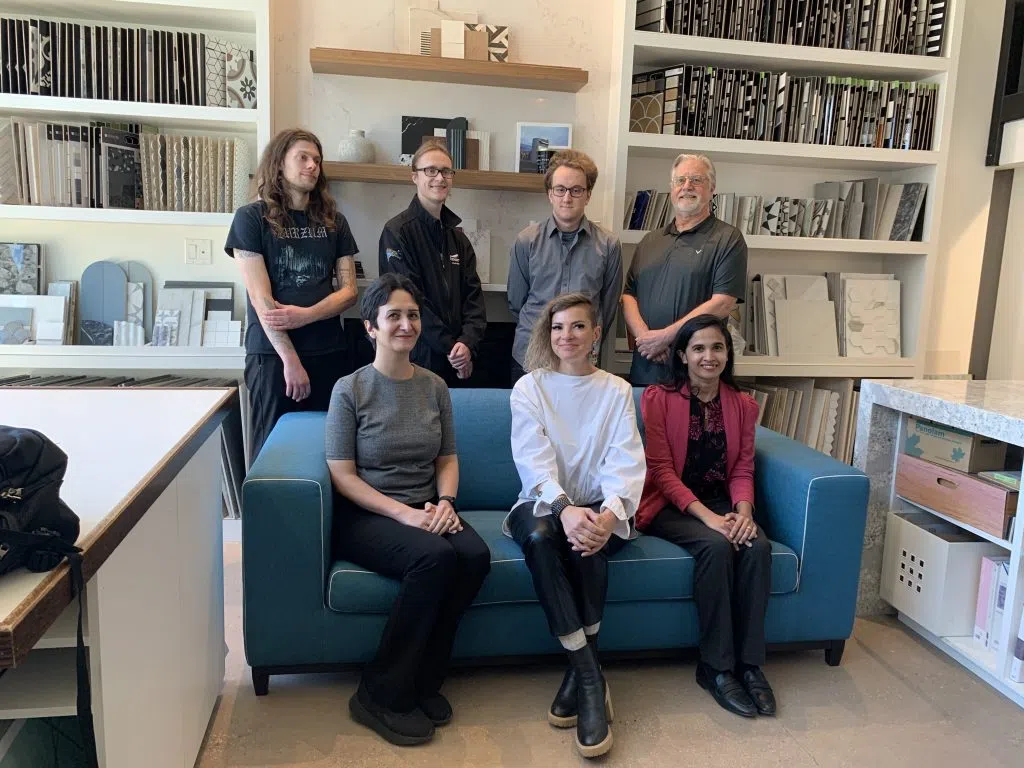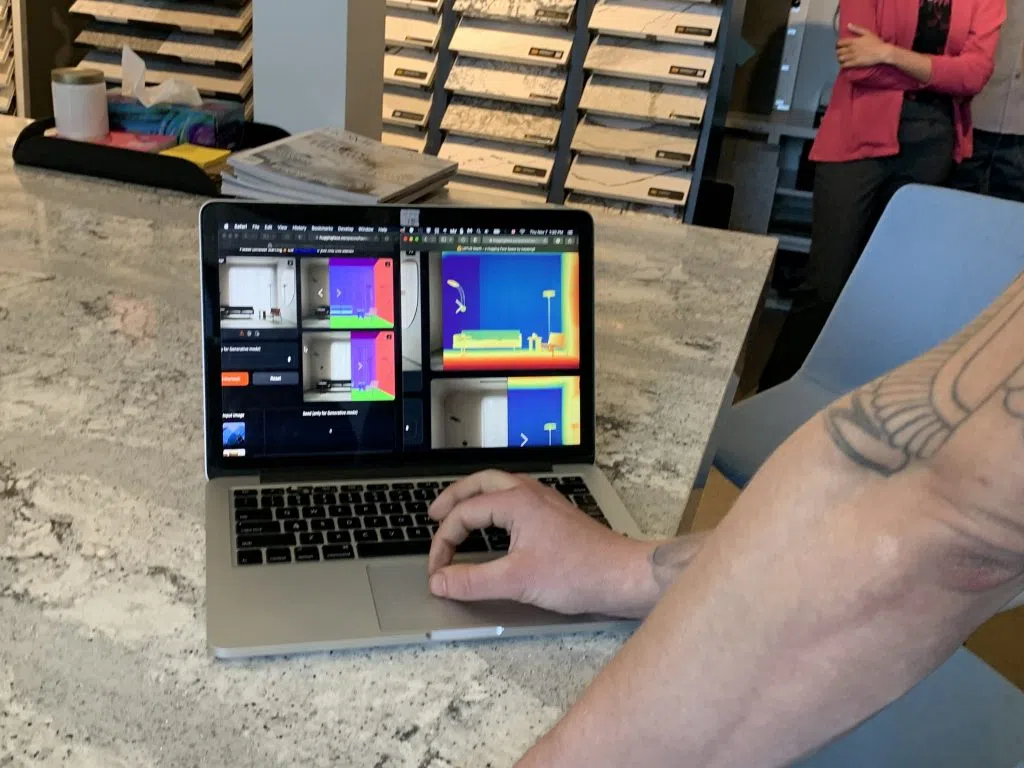A Saskatoon based interior design company has partnered with Saskatchewan Polytechnic to revolutionize the design industry using artificial intelligence.
Tamara Bowman, the Creative Director at Metric Design, says students at Sask. Polytech’s Digital Integration Centre of Excellence, or DICE, are developing two pieces of AI software that will allow designers to adjust a room’s measurements, furniture and colour scheme at the click of a button. Currently, she says the process is very time consuming and tedious.
With over $730,000 in grant money from the Natural Sciences and Engineering Research Council of Canada and Mitacs, students at DICE will develop two programs: a digital room-twinning program and a generative AI program.
Dr. Cyril Coupal, DICE research manager, says “The digital twin project will focus on the physical layout of the room being designed, enabling us to adjust windows and walls without the need for redesigning in a CAD/CAM program.”
The generative AI project will attempt to train an AI model to include the client’s and designer’s preferences into the design process.
Bowman says currently, designers spend significant amounts of time manually entering information into a spreadsheet. This provides the opportunity for errors and end up charging clients more for the time that was taken.
“In interior design, one of the problems is that there are so many products available. It’s really hard to be able to choose, and it’s a challenge to narrow down those selections both for the consumer and the designer. And then there are challenges around availability, and if the product is available, what that pricing might be.”
She adds that this software will significantly shave down design time, benefitting both the designer and the client.
“In this opportunity, we would be able to really simplify that time down to a fraction of what that might be. It might take three or four hours as opposed to twenty, and therefor it’s going to kind of simplify that and cost them less money.”
The digital room-twinning project is slated to be finished within the next eight months, and the AI generative aspect should be complete within the next three years.
Bowman says once they are complete, the programs will be tried within Metric Design, then it will be available for consumer trial, and finally it will become available as a preferred service for designers.






















